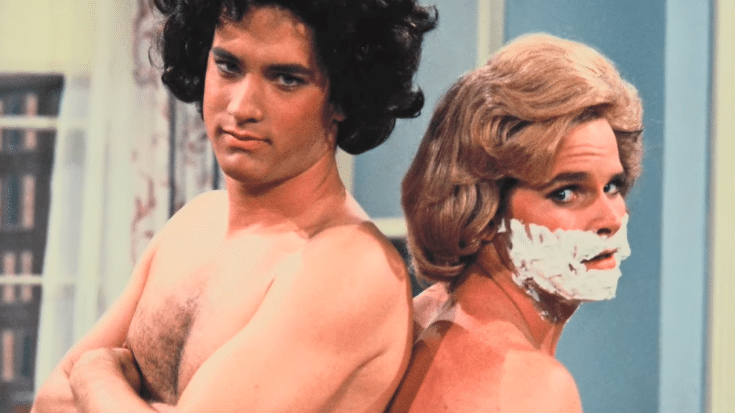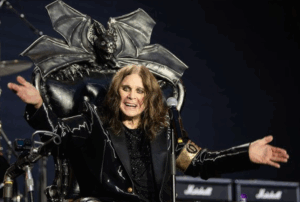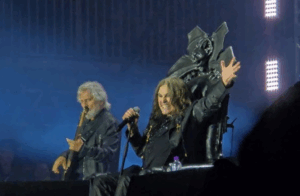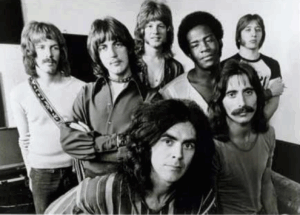7 ’80s Sitcoms That Didn’t Age Well

via Recollection Road - Entertainment / YouTube
When we look back at the colorful tapestry of ’80s television, we’re often flooded with nostalgic memories of laugh tracks and family-friendly plotlines. Popular series like “Cheers” and “The Golden Girls” may have found their place in TV history, but nostalgia can cloud our judgment of shows that, in hindsight, don’t measure up to modern sensitivities. Below, let’s take a journey through some of the decade’s sitcoms that fail to resonate with contemporary audiences due to their outdated humor and questionable content.
One of the Boys
One of the Boys cries out as a glaring example of age-inappropriate comedy. Its premise places an elderly man, played by Mickey Rooney, into the lively setting of a college campus with his younger relatives. What may have been intended as a clash of generations quickly turns into an uncomfortable serving of tasteless jokes about women and an unrealistic portrayal of cross-generational relationships. The series tried to meld old-fashioned vaudeville charm with youthful vigor but instead came across as a misjudged mishmash that struggled to find its footing in any era, let alone remain relevant in today’s society.
Married… with Children
Married… with Children boldly challenged the wholesome paradigm of its time by delving into the raw and explicit realities of a dysfunctional family. Straying far from the stereotype of the polished TV household, it presented viewers with characters that exemplified poor decisions and crass behavior. The show skirted controversy, from its depictions of sexism to its handling of LGBTQ+ themes, leaving a legacy interwoven with both comedic genius and problematic punchlines. While the cast’s chemistry was undeniable, the humor leaned heavily on stereotypes, which would likely be deemed too divisive for the screens of today.
a.k.a. Pablo
The short-lived series a.k.a. Pablo made an attempt at cultural representation through the lens of Paul Rodriguez’s character, Paul Rivera, and his large Mexican American family. Although Norman Lear, a legend in producing boundary-pushing sitcoms, was at the helm, this show missed its mark. Stereotypes ran rampant, and the crudely drawn characters failed to connect with audiences of any background. Instead of being a noteworthy step towards diversity in television, the show collapsed under the weight of clichés and cultural insensitivity, demonstrating the fine line between representation and caricature.
Bosom Buddies
Bosom Buddies found humor in its protagonists’ gender disguise, a concept that might not sit well in today’s climate of gender identity awareness. The sitcom, which helped launch the career of Tom Hanks, revolved around two men assuming female identities to secure affordable living quarters. Beyond the central conceit’s problematic nature, the series played into a host of dated tropes about women and conservative lifestyles. It’s a clear product of its time, revealing just how much our understanding of gender and equality has evolved since the sitcom first aired.
Casablanca
Warner Bros. dared to dip into the well of history with its television adaptation of Casablanca, a bold move that sought to recreate the allure of the iconic film. Despite featuring reputable actors like David Soul and Héctor Elizondo, the prequel series faltered, unable to encapsulate the magic that made the original film a masterpiece. In today’s fiercely protective entertainment climate, where classic films are cherished, such a venture would likely incite a virtual uproar, scuppering any hopes of a remake before it could even begin.
She’s the Sheriff
She’s the Sheriff planted Suzanne Somers in the role of a female sheriff in an overt attempt to challenge stereotypes, yet it paradoxically anchored its humor in those very tropes. Instead of championing the success of women in leadership, the show reverberated with the chauvinistic undertones of its era, suggesting a woman in a power position could only be a matter of chance, not competence or merit. The series attempted to straddle a dichotomy of old and new values—a tightrope act it ultimately failed to balance.
Small Wonder
Lastly, “Small Wonder” presents perhaps one of the ’80s most bizarre premises: a robot girl posing as a human child within a suburban family. The show revolves around Vicki, a Voice Input Child Identifical abbreviated as VICI, and the Lawson family’s escapades in maintaining her secret. While the show underscored the era’s fascination with technology and artifice, it faltered as Vicki’s robotic traits were at odds with the humanistic charm typical of family sitcoms. The concept of an android child was certainly novel; however, it became increasingly convoluted as real-life constraints, like the aging of the actress, imposed on the show’s fictional universe.

























